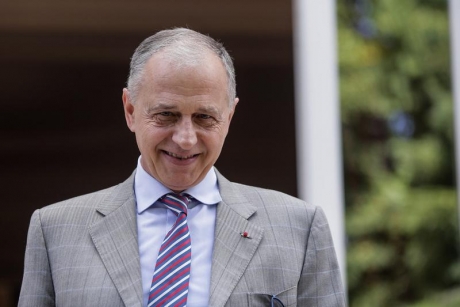NATO Deputy Secretary General Geoana: We are still struggling at the periphery of Europe.
Deputy Secretary General of NATO Mircea Geoana stated that Romania is running out of time because it has reached a “critical point,” although it has “the chance of an unique decade, of great transformations,” the country is still struggling at the periphery of Europe and if the political elites do not understand this thing, “all Romanians shall wipe the floor with the current political system.”
“More than 30 years have passed since we came out of darkness and almost 20 years since we entered the light, through the door of the free, Euro-Atlantic world. Throughout this period, good things have happened, but Romania’s transformation into a prosperous, respected and confident country has not happened. As a result, Romania is experiencing the huge trauma of abandonment: too many children, too many of our young women and men have either already left or do not see their future in their country. We are still struggling at the periphery of Europe. The agreements negotiated at the time of accession to the European Union have not been observed as they were fixed at that time. Schengen is a huge injustice, but there are others. I say it bluntly, because I know exactly what the terms of the agreement were. But neither did the political class rise to the heights of this unique period in our history. It is becoming obvious that the current political system has reached its limits,” Mircea Geoana stated within a conference called “Vision, innovation, transformation,” organized at the Tarii Crisurilor Museum.
According to him, Romania’s future is running out of time because “it has been floating in the fog for decades, it has been stumbling around in the words of some politicians and that is all, “this is why it must be redesigned on real bases, on concrete needs, in the short term.”
Mircea Geoana described the national project of Romania as having two large components: preserving the unity of the entire Romanian nation, both at home and the one spread across the world, and the definitive recovery of development gaps from the advanced West, by achieving a true historical leap, based on innovation.
In his view, the five preconditions for success refer to the existence of a vision for organising society, the quality of political leadership, the ability to constantly innovate “on the go,” a strong national, identity and community culture based on patriotism, solidarity and societal resilience, and a level of education and physical and moral health of the nation.
There is still a need, he continued, for “a thinking that is truly independent of the small partisan games at the top of the state,” respected and connected to the great transformations of the world, but anchored in the real problems of the country, for the promotion of meritocracy at every level, for new criteria according to which representatives are elected.
“Let us have the courage to rethink the Romanian state and the responsibility in public office from the ground up,” Geoana urged.
He believes that the country has reached a critical point, and that 2024 will be the year in which the political clocks of Romania, Europe and America will resynchronise.
“We have reached a critical point which, if the political elites do not understand, Romanians, all Romanians, are to wipe the floor with the current political system. And in desperation, we see that too many disappointed and hopeless Romanians are already looking for solutions where there is nothing but populism and hatred. We have the chance of a unique decade of great transformation for our destiny, in which Romania can truly become a strong, respected and prosperous country. It is only up to us,” Mircea Geoana concluded.

